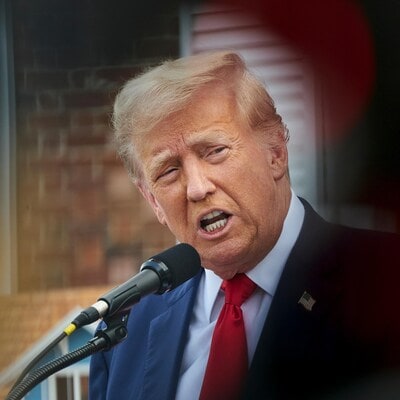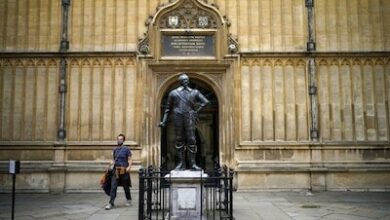Fixing child care would not be expensive: Trump as he proposes tax hikes | World News

)
Many argue child care will never be affordable for American families without a massive infusion of taxpayer money | Photo: Bloomberg
Asked recently how he would bring down the high cost of child care, former President Donald Trump said doing so would be relatively not very expensive at least, not compared with revenue from tax hikes he would impose on foreign goods.
Economists are skeptical tariffs would raise enough to cover Trump’s tax cuts as well as a large-scale child care programme, and Democrats said higher tariffs would raise costs for families by increasing the prices of consumer goods. A spokesperson for the Trump campaign did not respond to questions on his plans for child care.
On one point, some child care experts agree with Trump: Fixing the child care system would not be very expensive compared with some other government expenditures. But as past proposals have shown, the price tags associated with a federally funded child care system make it difficult politically to achieve.
I do think his comments are somewhat accurate that fixes to child care, making child care more accessible and more affordable for families is actually, in the scheme of things, probably not that expensive relative to many of the other things that we already spend money on, said Chloe Gibbs, a University of Notre Dame economist who served on the President’s Council of Economic Advisers from 2022 to 2023.
Trump made the remarks on child care during an appearance Thursday at the New York Economic Club.
We are going to be taking in trillions of dollars, Trump said, citing his proposed tariffs. And as much as child care is talked about as being expensive, it is relatively speaking not very expensive compared to the kind of numbers we’ll be taking in.
His election opponent, Vice President Kamala Harris, says she wants to lower the financial burden of care for families with children or disabled adults. She says she would raise pay for child care workers, preschool teachers and other professional caregivers. Her plan lacks specifics on how she would pay for those initiatives.
The child care industry is what Treasury Secretary Janet Yellen has called a broken market. Despite low wages, labour costs are high in part because one person can only supervise a small number of children. Those costs are passed on to families, who often struggle to afford tuition. Mothers end up staying home because child care costs more than they would earn in the workforce.
Many argue child care will never be affordable for American families without a massive infusion of taxpayer money.
Three years ago, President Joe Biden proposed a programme to ensure no family would spend more than 7 per cent of their household income on child care as part of Build Back Better, a suite of bills intended to strengthen the social safety net and tackle climate change. Its proposals for universal prekindergarten proposals alone were priced at $400 billion, and did not survive concerns from Sen. Joe Manchin, a centrist Democrat from West Virginia, that the total cost of the package was too high.
Biden has reintroduced the child care and prekindergarten proposals as part of his budget plan, but it is unlikely to get off the ground.
High-quality early education can shift the trajectory of a child’s life, said Hailey Gibbs, a policy analyst with the left-leaning Center for American Progress. Researchers have connected it to higher lifetime earnings, and lower incarceration and dropout rates.
Another proposal, put forward in 2019 by US Sen. Elizabeth Warren, a Massachusetts Democrat, would have established a network of public early learning centers and home-based day cares free for low-income families. Warren proposed funding the programmes, estimated to cost $700 billion over a decade, with a tax on millionaires.
Such proposals have failed in large part because of the costs involved, but there has been bipartisan support for some fixes. Sen. Tim Kaine of Virginia, a Democrat, and Sen. Katie Britt, an Alabama Republican, in July jointly introduced bills that would expand the tax credit households receive when they pay for child and dependent care. It would also increase the tax credit for companies that provide child care to their employees.
During his own administration, Trump proposed a $1 billion fund that would have given states grants for child care and made the money contingent upon them slimming down regulations. It never materialised.
Experts and advocates emphasise the spending on child care is an investment that can pay dividends. In the short term, it could get many more parents and caretakers back to work. The Council for a Strong America, a since-disbanded nonprofit that advocated for public funding to support youth, estimated last year the nation was losing about $122 billion in revenue and productivity because of child care issues.
(Only the headline and picture of this report may have been reworked by the Business Standard staff; the rest of the content is auto-generated from a syndicated feed.)
First Published: Sep 10 2024 | 7:55 AM IST




